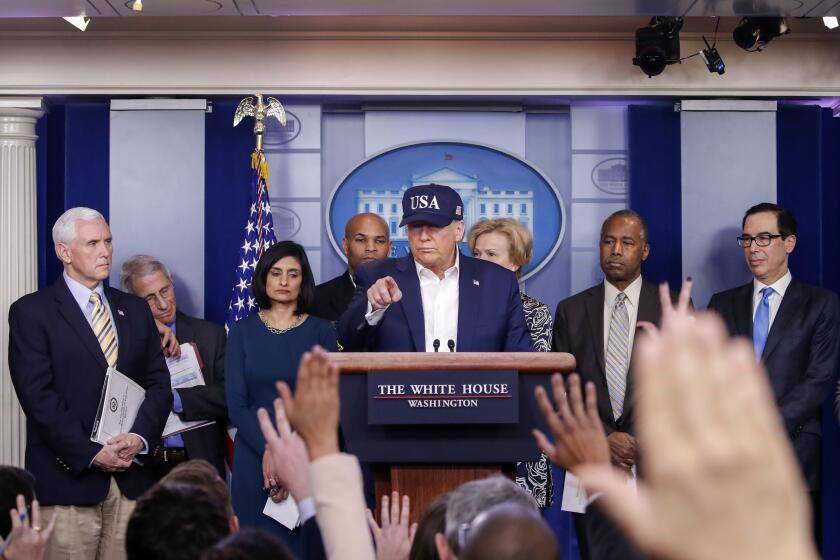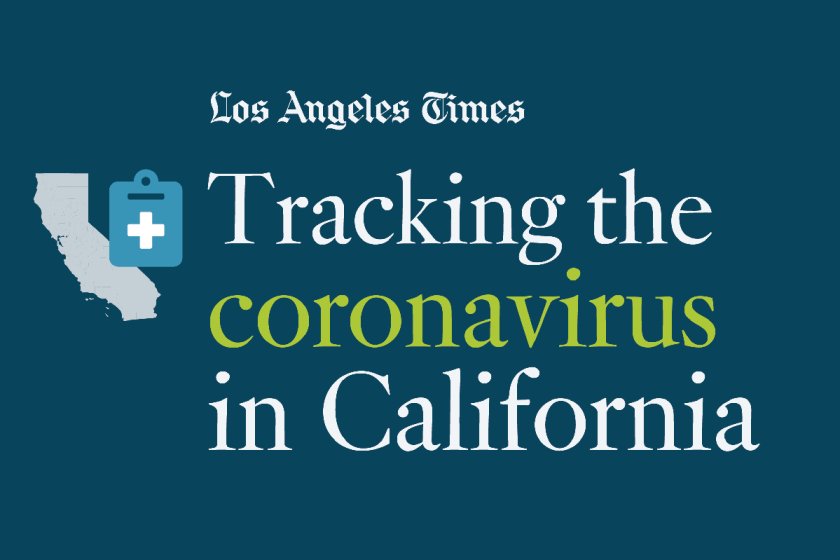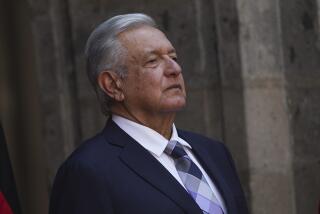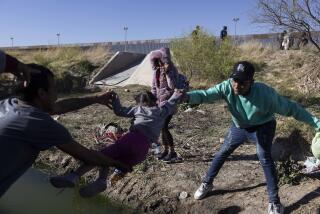Mexico, Latin America gear up for next phase of coronavirus threat
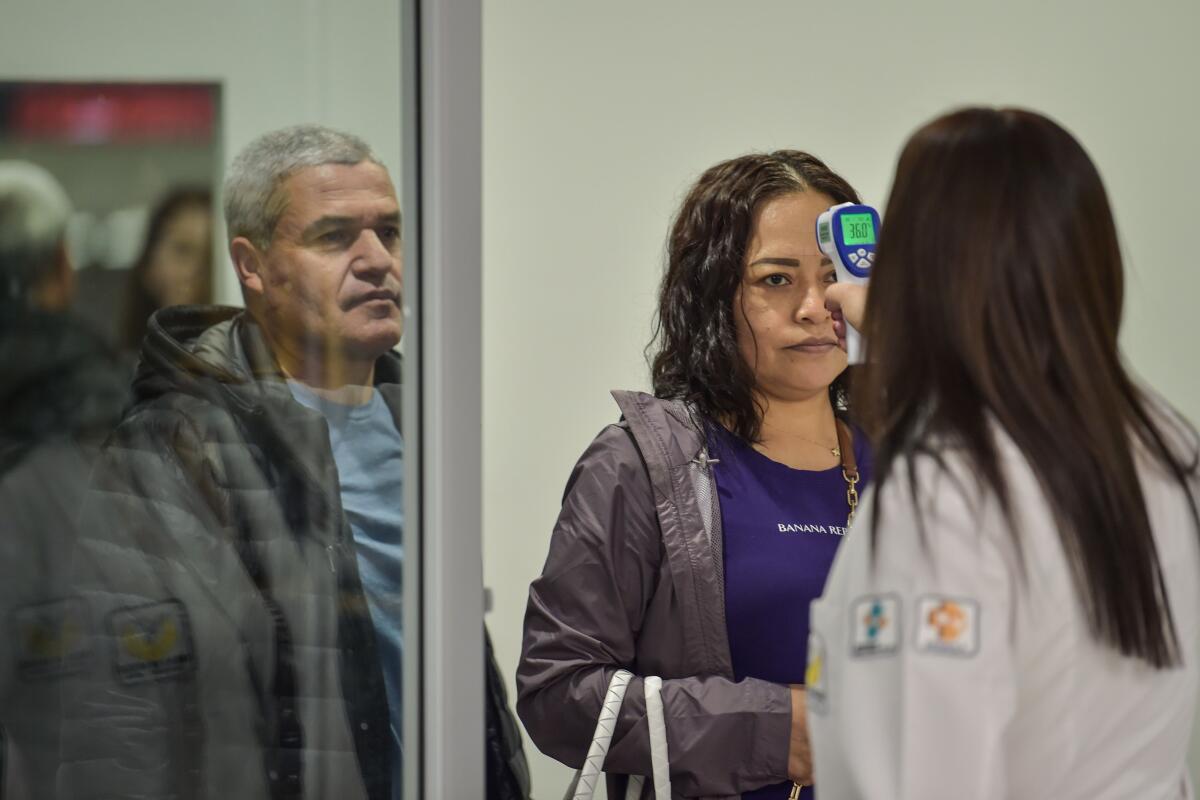
Relatively unscathed to date, Mexico and other Latin American nations are stepping up measures against the coronavirus pandemic as authorities brace for what they call the inevitable large-scale spread of the virus throughout the region.
Some Latin American countries have already closed schools, banned large gatherings, canceled sporting events and prohibited the entry of foreigners coming from countries with high numbers of COVID-19 cases.
Whether the moves will help shield the region from the viral onslaught remains to be seen.
“We don’t know yet if this virus will have a similar behavior as influenza and other respiratory viruses that have seasonal behavior, so I think it is best to prepare for the worst-case scenario,” said Jarbas Barbosa, deputy director of the Pan American Health Organization, who urged nations to continue with potentially mitigating steps.
As of early Saturday , according to the Pan American Health Organization, there had been 389 confirmed cases of COVID-19 in the Americas (excluding the United States and Canada), and five deaths.
President Trump said Saturday that he got tested for the coronavirus, and the White House later said it came back negative.
By contrast, the United States had recorded 2,726 cases and 54 deaths.
Regional governments have responded in varying ways — Mexico has been restrained, while El Salvador, where not a single case has been confirmed, has been the most aggressive, barring the entry of all foreigners, banning large gatherings and shutting down schools for three weeks.
“Any action we take now will seem exaggerated,” El Salvador President Nayib Bukele said in a Twitter message on Saturday . “Any action we want to take later will be insufficient.”
On Friday, neighboring Guatemala banned visitors from the United States and Canada, after already having shut the country to citizens of Iran and various Asian and European nations where major outbreaks have occurred.
But Guatemalan authorities said they were still accepting planes of deportees from the United States, including citizens from other Central American nations. Guatemalan officials said they trusted U.S. immigration personnel to screen all deportees.
In Mexico, where President Andrés Manuel López Obrador has been criticized for not moving more forcefully, officials on Saturday unveiled the country’s most dramatic move to date — pushing up the start of the school Easter break to March 20, two weeks earlier than scheduled, giving students and staff a full month off.
Mexican authorities urged citizens to embrace “preventative isolation,” and maintain their distance from others, especially while coughing, sneezing and speaking.
“This doesn’t mean that everyone should go off on vacation and get together and enjoy themselves, because what we want to avoid is proximity,” Esteban Moctezuma, Mexico’s public education secretary, told reporters. “Yes to preventative isolation.”
Mexican football league officials announced that matches would continue but stadiums would be closed to fans.
Also in Mexico, officials canceled the Guadalajara International Film Festival scheduled to run March 20-27, but did not call off the signature Vive Latino music fest, taking place this weekend in Mexico City and headlined by U.S. rock band Guns N’ Roses.
On Saturday, thousands of revelers were en route to Vive Latino in the Mexican capital, even though some bands had canceled. Organizers set up sanitary stations to scan concertgoers’ temperatures and provide antibacterial hand gel.
“Yeah, they were checking people’s temperatures, but they were overwhelmed and a lot of people got in without being checked, including me” said Rogelio Lopez, 35, a graphic designer who was attending the opening concert and was reached by cellphone. “Here things are normal, people aren’t wearing masks and in truth no one is taking precautions. I don’t know if it was a good decision to come, but I am here and I plan to enjoy myself.”
Across the region, shoppers have experienced shortages of sanitizing gel, toilet paper and other items as worried citizens have stocked up on supplies.
Venezuela, a nation already battered by political turmoil and chronic shortages of food and medicines, reported its first two coronavirus cases on Friday. A day earlier, President Nicolás Maduro had suspended flights from Europe and Colombia, and the U.S.-backed opposition called off planned street demonstrations — a possible boost for the embattled Maduro’s efforts to remain in office.
Colombian President Ivan Duque said he planned to close the country’s land borders with Venezuela as of Saturday in a bid to contain the virus’ spread, escalating tensions between the two South American neighbors.
The Venezuelan government, a long-time antagonist of Duque’s pro-Washington administration in Colombia, denounced the border shutdown as “a grotesque act of irresponsibility.”
In Brazil, President Jair Bolsonaro has taken to wearing a surgical mask as a preventative measure after he announced on Friday that he tested negative for the virus. The Brazilian leader had previously dismissed coronavirus fears as a media exaggeration, though Brazil tops the region with 151 confirmed cases as of Saturday.
Aides have urged Bolsonaro to maintain his distance from well-wishers and stop shaking hands in coming weeks, the Brazilian press has reported.
Bolsonaro was among a large official Brazilian contingent that met with President Trump and other senior U.S. officials last weekend at Mar-a-Lago, Trump’s Florida resort. Bolsonaro’s communications secretary, Fabio Wajngarten, who also was on the Mar-a-Lago trip, subsequently tested positive and is now in quarantine. The White House has downplayed any possibility that Trump or other senior U.S. officials may have been exposed.
Brazil reported Latin America’s first coronavirus case on Feb. 26, followed two days later by a case in Mexico.
Almost all instances to date in Latin America have been linked to people who had traveled to coronavirus-battered nations in Europe and Asia. Mexico has reported at least one case linked to travel to the U.S.
But authorities say instances of local contagion will likely accelerate in coming days and weeks, multiplying the number of cases.
In Mexico, where officials had confirmed 41 cases as of Saturday, the government has not moved to limit travel from other countries, possibly to help shield the country’s critical tourism business. Mexico’s economy was already plagued with slow growth before the onset of coronavirus, and now the tourism seems likely to take a large hit as fewer people travel.
As recently as a week ago, Mexican President López Obrador urged citizens not to abandon greeting customs, including hugging and kissing on the cheek.
“You have to hug, nothing is going to happen,” the president said.
Video circulating on social media on Saturday showed the president embracing and kissing well-wishers at a rally.
The president has repeatedly urged people not to “panic” and called on the press to avoid “yellow journalism” by exaggerating the threat and generating “a collective psychosis of fear.” López Obrador has accused political “adversaries” of being behind criticism of his approach.
The Mexican president was being “perfectly irresponsible” for not encouraging the social distancing that other countries have embraced, Javier Lozano Alarcón, who served as labor secretary under former President Felipe Calderón, said on Twitter.
“What part of ‘avoid handshakes, hugs and crowds’ have you not understood?” he said.
Mexico is “ill-prepared” for an outbreak given the country’s sputtering economy and an ongoing overhaul of its healthcare system, said Carlos Bravo Regidor, a professor at CIDE, a public research center in Mexico City.
“No country is completely prepared for a shock like this, but Mexico is on the very unprepared side,” he said, citing, among other factors, the country’s low rates of testing for the virus.
The government has said it hasn’t carried out many tests because Mexico has not yet seen a “community spread,” or cases of local contagion not linked to foreign travel.
“But how are you going to know when you enter the communal spread?” Bravo Regidor asked. “You’ll probably find out too late.”
Times staff writers McDonnell and Linthicum reported from Mexico City and Wilkinson from Washington. Times staff writer Cindy Carcamo in Los Angeles and special correspondents Cecilia Sánchez in Mexico City, Andrés D’Alessandro in Buenos Aires, Mery Mogollón in Caracas, Marcelo Soares in Sao Paulo and Chris Kraul in Bogota contributed to this report.
More to Read
Start your day right
Sign up for Essential California for news, features and recommendations from the L.A. Times and beyond in your inbox six days a week.
You may occasionally receive promotional content from the Los Angeles Times.
